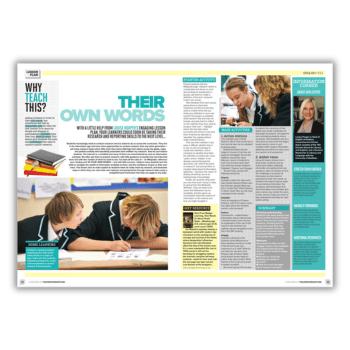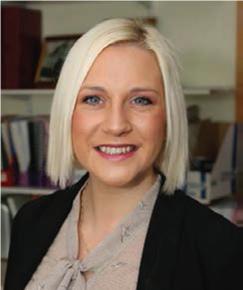With a little help from Louise Hooper’s engaging lesson plan, your learners will undertake a research project and take their reporting skills to the next level…
Asking students to write ‘in their own words’ can sometimes feel like an impossible task. So often the first instinct is to reach for Google. Pupils then attempt to painstakingly translate what they find, word by word.
This lesson aims to make explicit to students what we really mean by research. It illustrates ways in which pupils can voice their own opinions and perspectives through research tasks. They’ll use a straightforward framework that they can apply to any topic.
Research project starter activity
Present students with the Wikipedia page for ‘research’ (which is complicated and dense so as to demonstrate its drawbacks).
In groups, ask them to create a definition of the term ‘research’ in their own words. Take feedback from each group. Ask them to share their responses and the process they used to create it. How did they make their definition in their own words?
This begins to establish what research may and may not include. It asks them to reflect on the methods they have used to produce ‘their own’.
Highlight where this has been done successfully and where it may have been hindered by attempts to ‘translate’ the original without really understanding it.
Then ask them whether it was easy or difficult, whether they had to rely on prior knowledge to create their definition, and to comment on whether they think the definition provided was ‘clear’, ‘useful’ and/or ‘reliable’.
If not already covered through the discussion, ask ‘what is the point of research?’ and prompt them to consider ideas beyond information gathering.
Introduce the notion of adding something new to an existing body of knowledge. Finally, ask students what point you may have been trying to make by giving them the Wikipedia definition.
They are likely to be aware that Wikipedia may be unreliable, and this opens up conversation about the volume of information on the internet and how we might navigate it.
Louise Hooper is Head of English at Eastbury Comprehensive School and a Doctoral Researcher in Literacy and Language with the University of Sheffield. Browse more free KS3 English reading and writing lesson plans.














